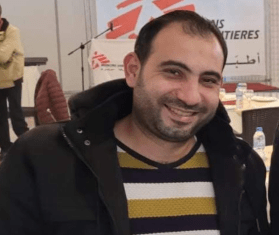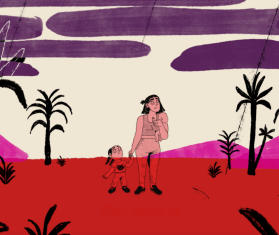Since 2004, MSF has been working in Armenia, a country with one of the highest per capita rates of Drug-Resistant Tuberculosis in the world.
Larisa* recalls with a shudder the moment she was diagnosed with drug-resistant tuberculosis in the central TB clinic in the Armenian capital of Yerevan. “I thought first of all, ‘that’s all, I will die,’ “ recounts the 29-year-old. She had been teaching English and had a young child of her own, but when the diagnosis came, “I thought there was nothing worse in this world,” she says. “The colors all around changed. All was black.”
Drug-resistant tuberculosis (DR TB) occurs when TB bacilli present in a patient are resistant to the first-line drugs that customarily are most effective in combating the disease. Patients with regular TB can develop resistance if they do not complete the full course of drugs. A person can also be directly infected by a drug-resistant TB strain from an infected DR TB patient.
Armenia has one of the highest per-capita rates of DR TB in the world, and since 2004, Doctors Without Borders/Médecins Sans Frontières (MSF) has been collaborating with the Ministry of Health to run the former Soviet republic’s only DR TB treatment program.
MSF provides the drugs—which can cost up to $15,000 per patient for a two-year course—supervises the treatment, and gives patients psychological and social assistance. Through the World Health Organization’s Green Light Committee-approved MSF program, the drugs are now accessible at a reduced cost to the program and available free of cost to the patients.
In a sense, Larisa was lucky. Armenia has a modern, well-equipped national laboratory for detecting DR TB, with results from sputum tests available within three weeks. But still, to get tested in the national laboratory, she had to be referred by a TB doctor. And in Armenia as elsewhere, it is a new intervention, something the TB program and its staff are developing with the support of MSF.
In Africa and other underdeveloped countries, the complex testing equipment needed to diagnose DR TB is not available. People frequently go undiagnosed and continue to spread the infectious, air-borne disease. Before her diagnosis, Larisa knew little about TB; when Armenian health authorities sent text messages advertising free treatment, she would delete them. Now, though, she understands that it’s a disease that is easily spread and that can affect all levels of a population.
Dr. Stobdan Kalon, MSF’s head of mission in Armenia, echoes this point: “Now the extent of the spread of TB is so generalized that it is very much likely that TB can affect anybody. We are starting to see TB in the general population, even the well-to-do, affluent population.”
After she was diagnosed last August, Larisa was hospitalized and treated for two months. She is now six months away from completing her treatment. Like the majority of patients, the toxic cocktail of drugs she must take results in strong side effects, but Larisa is determined to complete the treatment and resume her life fully. “I could not imagine it,” she said. "[The treatment] was so hard. It really is. But I’ll go to the end and I’ll take all the medicine.”
*Patient names have been changed



